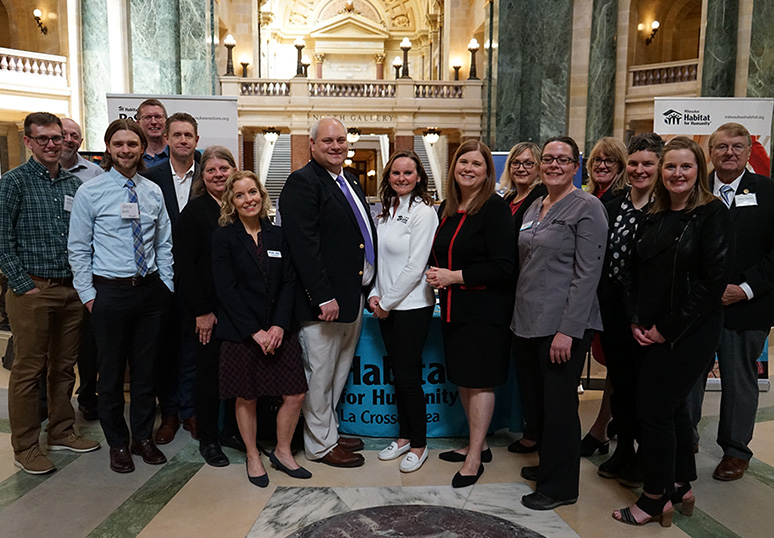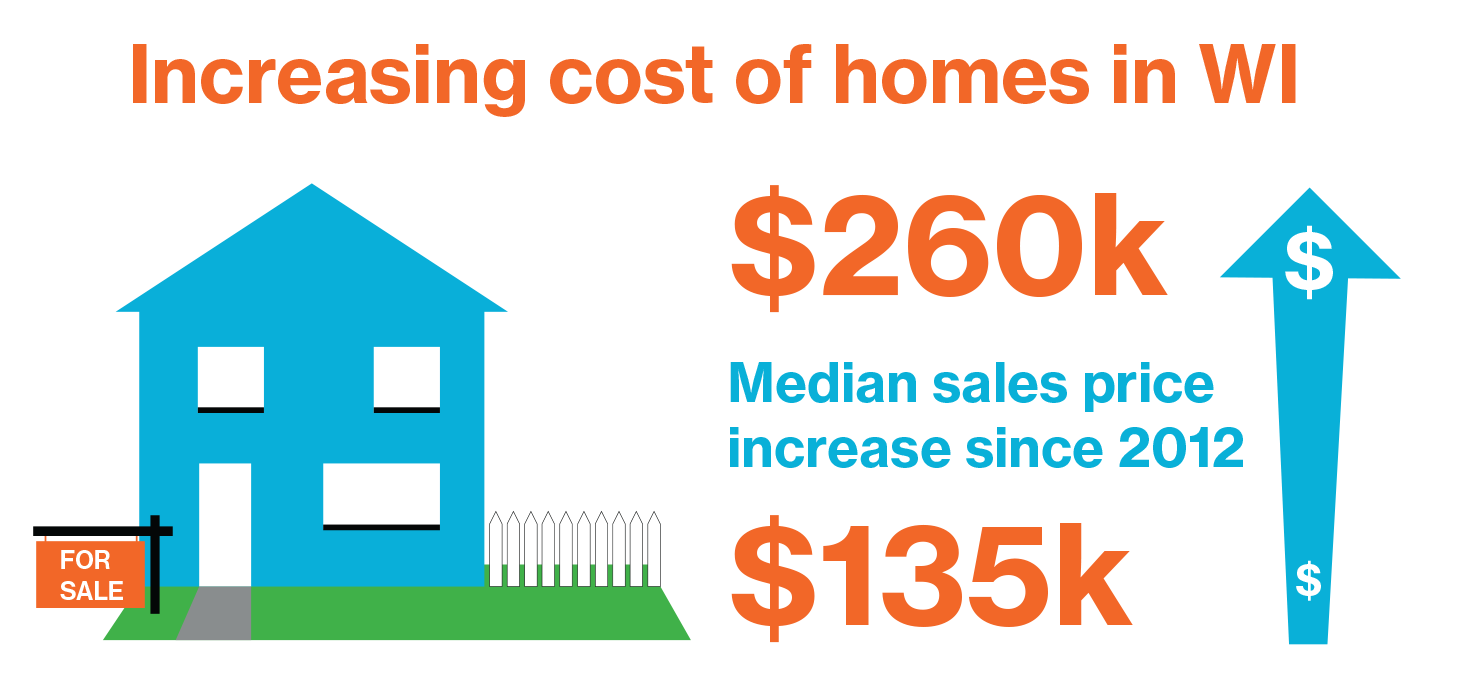What is Advocacy?
Advocacy is an activity by an individual or group that aims to influence decisions within political, economic, and social institutions
Why Advocacy?
- To affect policy that will support affordable housing
- To engage the community in understanding and advancing affordable housing
- To align organizations and individuals working towards affordable housing solutions

Educating about the need for affordable housing
Supporting federal policy requests within the Habitat for Humanity Cost of Home campaign
Researching, Supporting and Leading specific policy requests at the neighborhood, city and state level
Advocating for public funds to build and renovate homes
Get Involved!
Attend our Housing, Race and Equity Workshop. This interactive and discussion-based workshop provides a unique opportunity to delve deeper into the impact of local history on housing patterns. Sign up as an individual or schedule a workshop for your business or organization.
Advocacy Action Alerts
Join our advocacy network and be alerted when opportunities to engage arise.
Current Focus Areas
Locally
Down payment assistance with the city of Milwaukee: In partnership with other organizations, advocating for the city of Milwaukee to adequately fund its Down Payment Assistance Program.
Support of TID (Tax Incremental Districts) for affordable homeownership: Through a public-private partnership, TIDS to attract private investment in quality of life projects like homeownership. In 2024 the first TID for homeownership was approved which benefited the building of homes in the King Park and Midtown neighborhoods. Plans for additional TIDs in the city of Milwaukee are underway.
Key local partners:
Community Development Alliance: For the first time in Milwaukee's history a Collective Affordable Housing Plan has been developed to align our community's funders and practitioners. Milwaukee Habitat partnered with the Community Development Alliance (CDA) to develop this plan, with the goal of advancing racial equity by providing a quality, affordable home for every Milwaukeean. The goal is generational in time with 64K units created and preserved for homeownership and affordable rentals.
Take Root Milwaukee: Take Root Milwaukee is a consortium of over 50 community organizations, neighborhoods groups, HUD-certified housing counseling agencies, Realtors, and lenders working to promote sustainable homeownership in the City of Milwaukee. The membership promotes homeownership for first time home buyers and preservation of homeownership through financial education and affordable repairs.
Statewide
Habitat affiliates across the state are leading efforts to advocate for the Wisconsin Workforce Housing Program.
The Wisconsin Workforce Housing Program is a $100M program designed to provide gap financing for Wisconsin residents who are first-time homebuyers with incomes up to 120% of area median income (AMI).
 This workforce focus includes those working in healthcare (including CNAs and nurses), light manufacturing, schools (teacher aids, bus drivers, and some teachers), public workers (some firefighters and police), as well as transportation sector employees. The financing would be available for owner occupied new and substantially rehabbed homes.
This workforce focus includes those working in healthcare (including CNAs and nurses), light manufacturing, schools (teacher aids, bus drivers, and some teachers), public workers (some firefighters and police), as well as transportation sector employees. The financing would be available for owner occupied new and substantially rehabbed homes.
The gap financing is a 0% interest loan, with repayment beginning in year six or at sale or transfer. Those at lower income levels qualify for a yearly percentage to be permanently deferred. The loan amount is up to $60K with a sliding scale availability.
Key Statewide Partner: Habitat Wisconsin's mission is to empower Wisconsin Habitat for Humanity affiliates to create one voice that advocates and influences affordable home ownership.
Nationwide
Pass the Neighborhood Homes Investment Act.
The Neighborhood Homes Investment Act calls for the creation of a new federal tax credit that will produce new equity investment dollars for the development and renovation of single-to-four-family housing in distressed urban, suburban, and rural neighborhoods.
In hundreds of communities throughout the country, neighborhood revitalization is being stymied by the “value gap” — the situation in which the cost of rehabilitating or building a home is greater than the post-construction value of the home.
Key Federal Partner
Habitat for Humanity's US National Policy Platform is to:
Increase affordable homeownership supply.
Ensure equitable homeownership supply.
Improve homeownership resilience.

